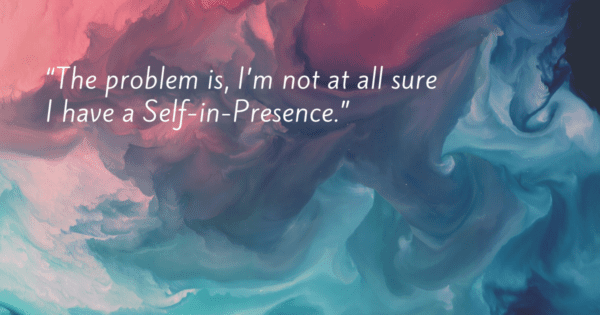“Are positive feelings better than negative feelings?”
Paul writes: “Is a feeling of positivity a part, just like a feeling of negativity is considered a part? (As in: Part of me is happy and part of me is sad about that.) It seems I never see in your writing where positive or ‘good’ feelings are looked at in terms of partiality, and something about this is confusing to me.
“I say to myself: ‘But aren’t all inner experiences parts? What does it matter if they are ‘positive’ or ‘negative’?” And when I feel both positive and negative feelings (As in: I am happy about that, and part of me is sad about that.) it seems like I’m doing an injustice to the negative (sad) feelings if I merge with the happiness. It just doesn’t feel right to say ‘I am happy about that, and part of me is sad about that.’ If I say that, it doesn’t seem true because when part of me is sad about that, I’m not ready to be happy about that.”
Dear Paul,
Right, I do see your point! Clearly, we haven’t made a full enough distinction, when we have said something like “It’s OK to merge with positive feelings, but negative feelings are a part that we want to disidentify from (but be compassionate toward).”
In a case like being both happy and sad ABOUT something, it does sound like these are both parts. “Part of me is happy about getting sick so I can have a day off, but part of me is worried about all the work I have to do.” These are clearly parallel, and in opposition– and in Focusing we would spend time listening to each one and getting to know it better.
So I would say that “happy about” wasn’t what we were talking about, when we talked about a positive feeling. “Happy about” is not so much a feeling as it is a position, a stance. We still don’t know, when we hear “happy about,” how it feels in the body.
It’s the positive, enjoyable body feelings that we can allow to be fully there, not needing to call them “parts” and not needing to turn toward them from Self-in-Presence. They help us BE Self-in-Presence. Let me give you an example.
“I am feeling joyful and full of light.”
Sally was Focusing with anxious feelings that were there when she felt on the spot, under pressure. She used this language to help the Focusing begin: “I’m sensing something in me feels anxious.” This helped her locate the anxious feelings in her throat and her chest.
She was able to sit with those feelings compassionately. She put a gentle hand on her chest, and said, “Yes, I know you’re there,” to the feelings. There was a sense of easing. “Wow,” she said to her Focusing partner. “It feels like they’ve been waiting for this!” She noticed her breathing getting deeper.
Sally reported that she had feelings of relief and ease moving through her whole body. Her Focusing partner suggested she let those feelings be there as fully as they wanted to be.
“Wow,” said Sally, “now I am feeling joyful and full of light.”
She continued to enjoy being joyful and full of light until her Focusing session was over.
It wasn’t a part of her feeling joyful and full of light–SHE was feeling that. But notice also, she wasn’t feeling that way “about” something. It was simply how she was. So when that little word “about” sneaks in there, it’s not a positive feeling, but rather a point of view… and that would be a part of us.






